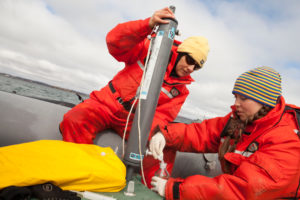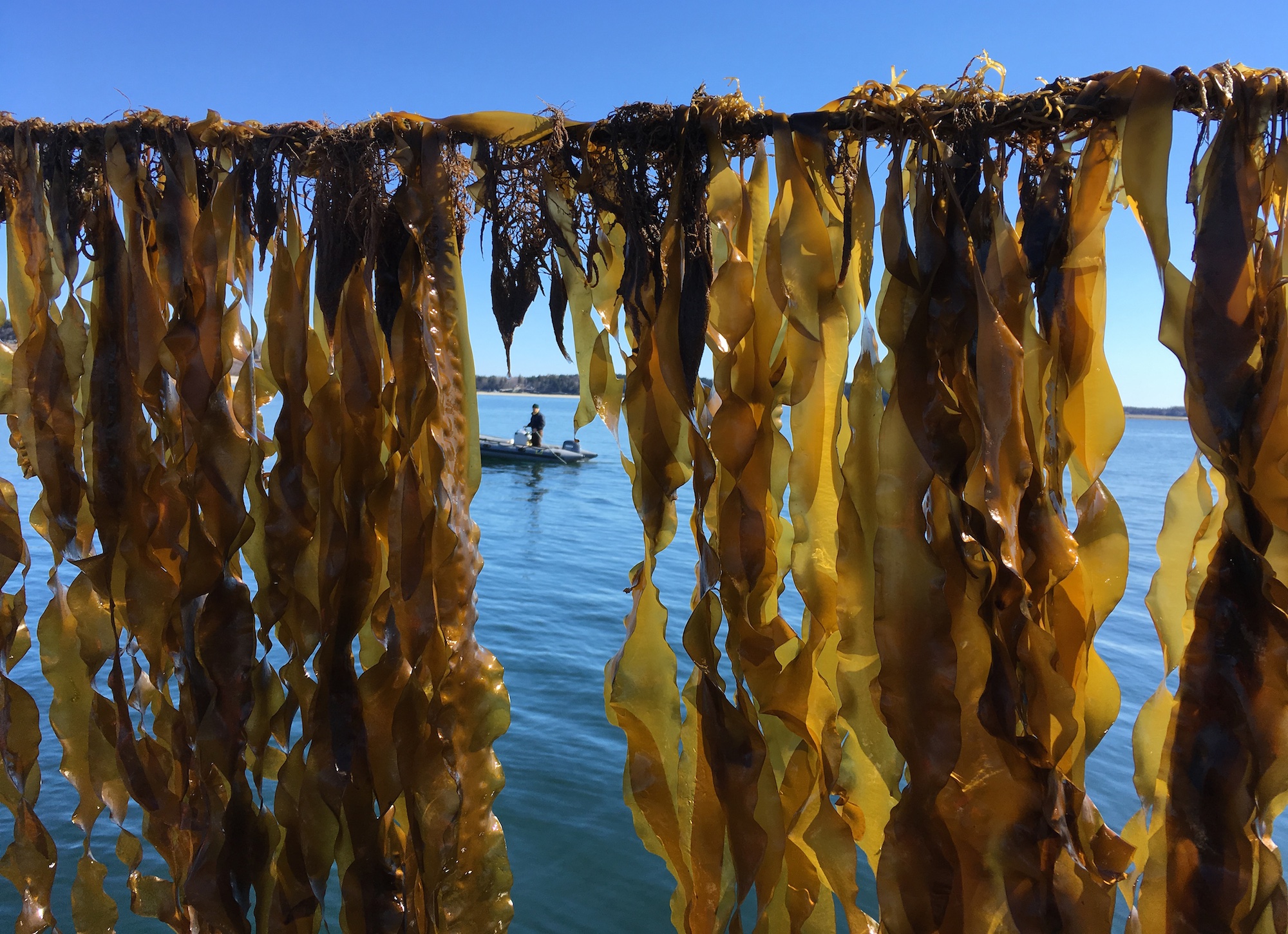
The potential impact of ocean acidification along Maine’s coast is largely unknown. With a heavy economic reliance on organisms that build shells, any changes to water chemistry can present a significant threat to the future viability of our coastal communities.
For the last few years, we have been working to make sure that they are better prepared for ocean acidification.
Island Institute Marine Scientist Dr. Susie Arnold served on the Maine legislature’s Commission to Study the Effects of Coastal and Ocean Acidification, and presently serves on the Maine Climate Council’s Scientific and Technical Subcommittee where she coauthored the chapter on ocean and coastal acidification in the report: Scientific Assessment of Climate Change and Its Effects in Maine.
Ocean chemistry and our fisheries
Shell-forming species in Maine’s coastal waters, such as clams, mussels, oysters, and lobsters, are at risk due to ocean acidification. Ocean acidification is a term used to describe the changing chemistry of the ocean caused primarily by uptake of CO2 from the atmosphere. This oceanic uptake of CO2 has direct consequences on ocean chemistry, leading to decreases in pH and lower calcium carbonate saturation in surface waters, which together are referred to as ocean acidification (OA). While the pH of the ocean had held stable for over 600,000 years, in the last 200 years it has begun to decrease, and predictions of further declines over the next century raise questions about impacts on the long-term viability of our fisheries.
The potential for kelp
 In 2015, the Commission issued a report identifying critical knowledge gaps in our understanding of our vulnerability, as well as ways in which we can respond, including the use of phytoremediation to reduce acidity through kelp farming. Phytoremediation is the process by which kelp takes in CO2, nitrogen, and phosphorus, and outputs oxygen, creating a “halo effect” of remediated water around the kelp farm.
In 2015, the Commission issued a report identifying critical knowledge gaps in our understanding of our vulnerability, as well as ways in which we can respond, including the use of phytoremediation to reduce acidity through kelp farming. Phytoremediation is the process by which kelp takes in CO2, nitrogen, and phosphorus, and outputs oxygen, creating a “halo effect” of remediated water around the kelp farm.
That potential capacity is the focus of a research project being conducted by Dr. Arnold and Dr. Nichole Price, a marine scientist at Bigelow Laboratory for Ocean Sciences, in the waters around a kelp farm in Casco Bay. The long-term goals of the proposed work are to measure the size, impact, and permanency of OA remediation through kelp farming as a low-cost, low-risk way to enhance water chemistry while contributing to shellfish growth, increasing shellfish yield, decreasing time to market and adding a potential income stream for Maine’s fishermen.
Preliminary data indicate that phytoremediation from kelp can improve ocean acidification, although the size, relative impact, and permanency of the theoretical ‘halo’ of phytoremediated water surrounding a kelp farm is yet to be determined. Future research by Arnold and Price will focus on studying the halo effect further and examining these questions.
For more information on our ocean acidification research, contact Susie Arnold Ph.D., Marine Scientist.

